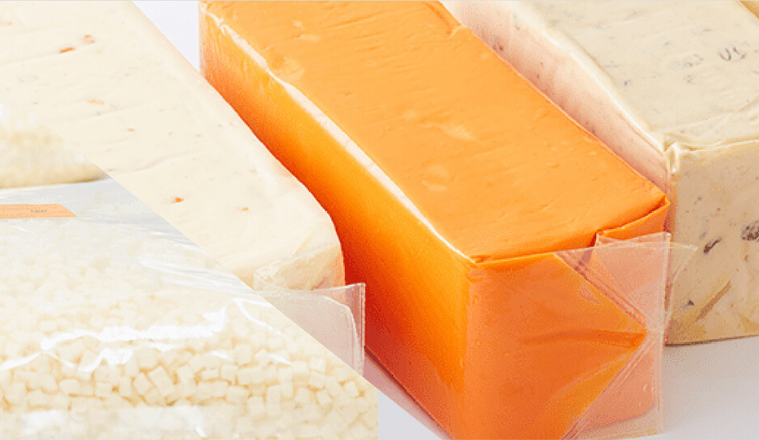A Comprehensive Appearance at Cheese Production: Components, Methods, and the Future of Craftsmen Cheeses
The intricate process of cheese manufacturing is an interesting convergence of art and scientific research, where high-quality milk, rennet, and certain bacterial cultures serve as fundamental components. As the sector progressively prioritizes sustainability and openness, the future of artisan cheeses promises to show both heritage and development.
Secret Active Ingredients in Cheese Production
A variety of vital components play a crucial role in cheese manufacturing, each adding to the end product's flavor, appearance, and character. The key ingredient in cheese is milk, which can come from numerous sources, consisting of cows, goats, and lamb - cheese shop melbourne. The kind of milk made use of substantially affects celebrity's preference and consistency; as an example, cow's milk generally yields creamier cheeses, while goat's milk usually produces zesty varieties
Another essential active ingredient is rennet, an enzyme utilized to curdle the milk, dividing it into curds and whey. The source of rennet can be animal, veggie, or microbial, each imparting distinct characteristics to celebrity. Societies, containing specific stress of microorganisms, are likewise indispensable to the cheese-making process. They ferment lactose right into lactic acid, helping in flavor development and appearance.
Salt not just boosts the flavor but also acts as a preservative, inhibiting the development of undesirable microorganisms. In addition, different flavor representatives, such as natural herbs, seasonings, and even smoked timber, can be included in produce one-of-a-kind artisanal cheeses. With each other, these active ingredients form the structure of cheese production, establishing the stage for diverse and abundant cheese varieties.
Standard Cheese-Making Techniques
Making use of standard cheese-making strategies, craftsmens around the globe maintain classic approaches that have actually been given via generations. These strategies typically highlight using top notch, in your area sourced milk, which is central to the one-of-a-kind tastes and structures of artisanal cheeses. The process generally begins with the cautious heating of milk, adhered to by the enhancement of cultures and rennet to help with coagulation.
When the curds create, they are reduced, allowing whey to drain, an essential action that affects moisture content and texture. Salting is a vital facet of this procedure, enhancing taste while likewise acting as a preservative.
Aging, or affinage, is an additional crucial component, throughout which cheeses develop their characteristic fragrances and tastes. Craftsmens may utilize specific maturing environments, utilizing moisture and temperature level controls to improve the cheese's profile. The commitment to these typical techniques not only sustains local economic climates yet additionally adds to the abundant variety of cheese selections found worldwide, commemorating cultural heritage and artisanal craftsmanship.
Modern Innovations in Cheese Production
Just how have technical developments transformed cheese production in current years? The combination of contemporary innovation has transformed both the performance and high quality of cheese production.
Additionally, developments in microbiology have actually enabled cheesemakers to choose specific microbial societies and enzymes, maximizing taste profiles and go to the website boosting service life. Making use of sensing unit innovation for keeping an eye on fermentation problems has additionally come to be prevalent, allowing for real-time adjustments to preserve optimal atmospheres for cheese aging.

These developments not only boost the quality and sustainability of cheese production however also encourage craftsmen producers to maintain standard tastes while welcoming modern-day effectiveness. As technology remains to advance, the future of cheese production looks appealing, blending custom with advancement.
The Function of Terroir in Cheese
In the realm of cheese production, terroir plays a pivotal role in defining the distinct features of various cheeses. Terroir, a French term typically related to white wine, encompasses the environmental factors that influence agricultural products, including dirt structure, climate, and regional plants and fauna. In cheese-making, the unique characteristics of the area where the milk is sourced can convey certain tastes and structures to the end product.
For example, the grazing conditions of dairy products animals considerably influence the milk's structure, influenced by click here for more the kinds of grasses and natural herbs available in a certain area. This varies not just in between countries yet additionally in between regions within the same nation. In addition, the microbial communities existing in the environment add to the fermentation right here procedures, bring about diverse accounts in taste and scent.
Cheeses such as Roquefort, Parmigiano-Reggiano, and Cheddar exhibit how terroir can shape their identifications, making them unique and typically shielded by geographical indicators. As producers significantly identify the significance of terroir, there is a growing emphasis on sourcing local active ingredients and preserving typical practices, ensuring that each cheese genuinely mirrors its origin.

Future Trends in Artisan Cheeses
A significant shift is occurring in the craftsmen cheese market, driven by advancing consumer choices and technological advancements. Significantly, consumers are being attracted toward unique, high-quality items that emphasize both sustainability and neighborhood sourcing - cheese shop melbourne. This pattern is motivating artisan cheesemakers to introduce, concentrating on small-batch manufacturing and using traditional strategies while integrating modern-day technology to boost high quality and safety
Additionally, there is an expanding rate of interest in plant-based and alternative milk products, pushing conventional cheesemakers to discover new opportunities, such as cashew or almond-based cheeses. This change not only accommodates nutritional restrictions however additionally lines up with ecological concerns pertaining to animal agriculture.
Furthermore, openness in sourcing and production procedures is becoming extremely important. Customers are extra informed and need traceability, prompting producers to take on more clear labeling methods and engage in narration that highlights their methods and worths.
Conclusion
To conclude, the intricate process of cheese production melds standard strategies with contemporary developments, resulting in a diverse range of flavors and textures. The focus on high-quality ingredients and the influence of terroir emphasize the virtuosity involved in cheese production. As the industry evolves, a concentrate on sustainability and transparency will likely shape the future of artisan cheeses, accommodating a progressively critical customer base that values credibility and workmanship in milk items.